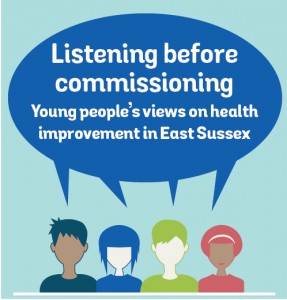An open letter on the crisis in breastfeeding in the UK has been issued today, signed by health visitors, midwives, paediatricians, GPs, lactation consultants, breastfeeding counsellors, peer supporters, university researchers and others who work for professional organisations and charities that support families.
The letter follows the recent series in The Lancet on breastfeeding – the most comprehensive review of all the evidence on breastfeeding to date.
The open letter states: “The breastfeeding crisis in the UK is in fact a crisis of lack of support for those mothers who choose to breastfeed.” It highlights the recent cuts to breastfeeding support services and the infant feeding specialist posts, which are driven by cuts to public health, which amount to £200 million in total in England. (See detailed list of cuts in Notes to Editors.)
The letter calls on government, as a matter of urgency, to safeguard the public health budget.
The signatories make clear that the message of The Lancet series is that increasing breastfeeding rates is everyone’s responsibility, quoting report co-author Dr Nigel Rollins of the World Health Organisation (WHO), who said: “The success or failure of breastfeeding should not be seen solely as the responsibility of the woman. Her ability to breastfeed is very much shaped by the support and the environment in which she lives. There is a broader responsibility of governments and society to support women through policies and programmes in the community.”
It is not a matter of persuading mothers to breastfeed – most mothers begin breastfeeding and initiation rates are around 80 percent. “However, rates plummet in the first weeks and months after birth, and most mothers say they stopped breastfeeding before they wanted to,” says the letter.
The letter goes on to highlight the strategy that the government must adopt in order to increase breastfeeding rates in the UK. Research from other countries that have achieved this shows that a multifaceted approach is needed, with interventions delivered in combination. The authors call on the UK government and the national assemblies to:
- establish a multi-sectoral National Breastfeeding Committee to develop a National Breastfeeding Strategy
- all maternity and community settings must meet Baby Friendly standards, as per NICE guidelines
- all mothers in the UK must receive skilled, evidence-based breastfeeding support, as per NICE guidelines
- safeguarding the public health budget for universal health visiting services and breastfeeding support
- fully enact in UK law the International Code of Marketing of Breastmilk Substitutes, which would end the advertising of follow-on formula
- require employers to provide breaks to breastfeeding mothers to breastfeed or express milk at work
Open Letter on the crisis in UK breastfeeding
Carol Williams and Dr Nigel Sherriff signed the Open Letter stating “The health promotion research team at the University of Brighton’s Centre for Health Research (CHR) supports this call to action. More intensive, coordinated, novel, and diverse support for breastfeeding is required. We agree that ‘success in breastfeeding is not the sole responsibility of the woman’. However, calls for increased support and supportive environments also need to go further. Research demonstrates the impact fathers and/or partners can have (positively and negatively) on the decision to initiate and continue with breastfeeding. Our own research and that of others show fathers remain a valuable source of support for breastfeeding mothers, as well as an ‘untapped’ resource for health professionals and lay people whom may be supporting breastfeeding. Government and local authority resources need to be re-focused to better engage with families including fathers and/or partners to support better, those who wish to breastfeed.”



